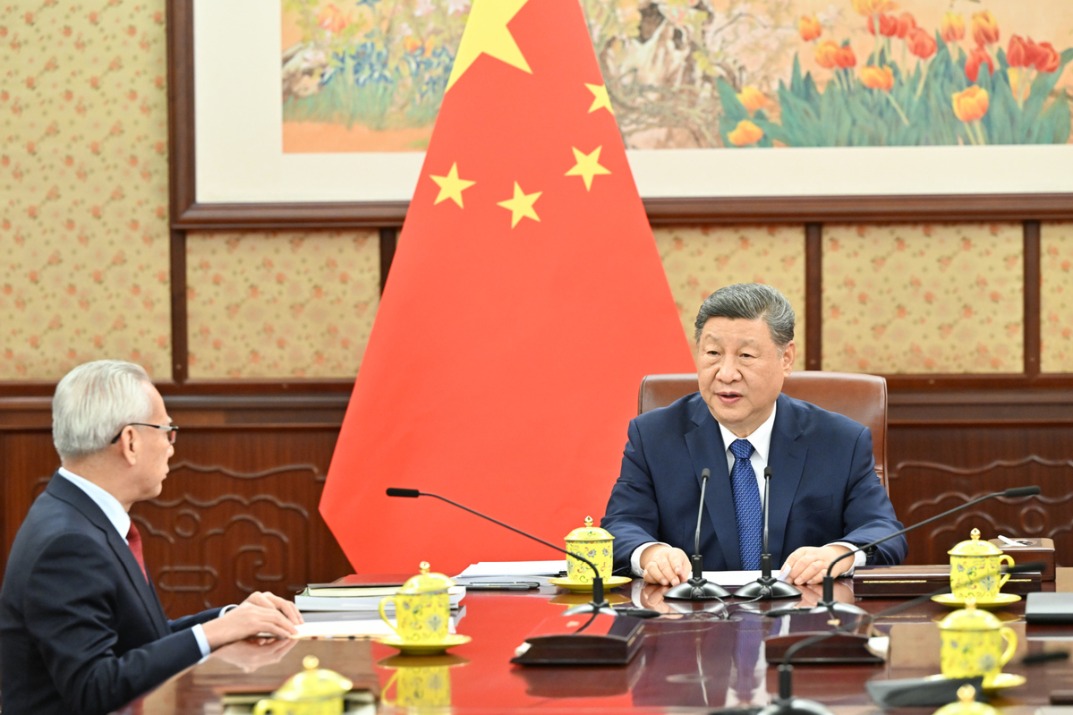Communication vital to projects' success

An attack on Chinese workers by Kenyan youths demanding jobs shows importance of getting buy-in from local communities
The Aug 2 attack on 14 Chinese railway workers by a group of some 200 local youths in Kenya reminded me of several other incidents that have been previously reported in Africa. It could have put in jeopardy the completion of the first modern railway the country has had since the meter-gauge railway built by British colonists in the 1890s.
The bone of contention, according to media reports, is that Maasai morans, or warriors, were demanding job opportunities. They claimed that China Road and Bridge Corp, the company building the rail line, was giving opportunities to Chinese workers at their expense.
The Kenyan government, however, reacted swiftly and angrily. In a statement, it reminded the country of the benefits from the standard gauge railway project and what is yet to be gained once it becomes operational. The statement noted that at least 27,000 Kenyans have already gained meaningful employment in the first phase, which covers 472 kilometers from Mombasa to Nairobi, while only 2,000 Chinese engineers are actively engaged.
It is not the first time that Chinese companies in Africa have been put under pressure to explain the presence of Chinese workers on state-owned projects. In this case, CRBC had to explain that only 10 percent of their workforce is Chinese and that new opportunities are made available to locals as the need arises. But this seems unsatisfactory to some, especially to local governments that have already assured jobs to their constituents even before the project reached their areas.

This incident and others that could emerge in other African countries call for an effective and amicable solution.
President Xi Jinping in December pledged that China's cumulative direct investment to Africa will grow from the current $30 billion to $60 billion within the next three to five years. With investments of such proportions, it is expected that the presence of Chinese nationals in Africa will expand in equal measure as more Chinese migrants seek work and study on the continent.
Already, Chinese firms led by CRBC have launched corporate social responsibility projects to forge an amiable working environment with communities. Such programs include building classrooms for schools, drilling communal boreholes for locals living along the railway line, providing scholarships for Kenyan students to study railway engineering in China, organizing essay writing and photography contests, and establishing a railway training institute to improve the capacity of Kenyan employees.
All these are very good initiatives. But looking at prevailing conditions, a different type of effort also is needed. Chinese contractors need to understand that CSR activities without civic education are not sufficient to cushion them from locals' wrath, born out of misunderstanding.
Chinese contractors, in partnership with governments, should send advance parties to sites where the projects are planned. Their mission would be to engage local leaders and community groups such as local women's groups, men's groups, youth groups and church groups in areas of their operation to help in educating the locals on the benefits of the project.
This would greatly lessen the chances that they would receive a hostile reception.
Having the government as its partner is a big plus. The government has the influence to directly reach its citizens and create awareness about the benefits of these projects. The Kenyan government has previously employed engaging programs to obtain local ownership in its programs, such as in the case of a conflict between residents and wildlife that was negatively affecting the tourism industry.
With the help of the Kenya Wildlife Service, community programs to integrate the locals into its conservation efforts were launched. The communities living around the wildlife now understand the benefits of wildlife conservation and are the biggest stakeholders in the booming tourism industry.
The infrastructure sector needs a similar initiative.
It is worth noting that during the building of the 1,860-kilometer Tanzania-Zambia Railway, better known as Tazara, in the 1970s, Chinese, Tanzanian and Zambian nationals worked side by side as brothers. Several of them lost their lives and were buried along the railway line, which remains a monument to Sino-African relations.
The author is a PhD student at Kenyatta University in Nairobi and a contributor to China Daily. The views do not necessarily reflect those of China Daily.
(China Daily Africa Weekly 09/02/2016 page13)
Today's Top News
- Xi hears report from Macao SAR chief executive
- Xi hears report from HKSAR chief executive
- UN envoy calls on Japan to retract Taiwan comments
- Innovation to give edge in frontier sectors
- Sanctions on Japan's former senior official announced
- Xi stresses importance of raising minors' moral standards





























